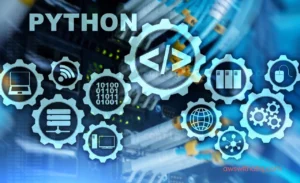Introduction
What is MLOps?
MLOps, a portmanteau of “Machine Learning” and “Operations”, is a set of practices, principles, and tooling conventions aimed at automating the end-to-end machine learning lifecycle. It’s an interdisciplinary field that bridges the gap between Data Science and IT Operations, ensuring seamless integration, deployment, and maintenance of ML models in production environments.
Why is certification important?
In an ever-evolving tech landscape, certifications validate one’s proficiency and expertise. For professionals diving into the realm of MLOps, certification offers a structured learning path, ensuring they acquire essential knowledge and skills. Moreover, it provides employers with a benchmark for assessing a candidate’s capability in this niche domain.
The Rise of MLOps
History and evolution of MLOps:
The concept of MLOps draws inspiration from DevOps, which revolutionized software development by promoting collaboration between development and operations teams. With the surge in businesses harnessing machine learning, there was a need for a similar paradigm shift, leading to the birth of MLOps. This evolution was driven by challenges faced during the deployment, monitoring, and maintenance of ML models in real-world scenarios.
Why it’s becoming increasingly relevant in today’s data-driven world:
Today, data is the new oil, and machine learning is the engine that drives businesses forward. But developing an ML model is just a fraction of the task. Ensuring its smooth operation in production environments is where MLOps comes into play. As companies recognize the value of operationalizing their ML models efficiently, the relevance of MLOps skyrockets.
Components of MLOps
Continuous integration and delivery for ML (CI/CD):
Just as CI/CD streamlines software development, in MLOps, it ensures that ML models are consistently integrated and delivered to production with minimal manual intervention. This involves automated testing, validation, and deployment pipelines.
Model versioning, testing, and deployment:
MLOps emphasizes the importance of treating ML models like software. Model versioning allows tracking changes and reverting to previous states if needed. Comprehensive testing ensures model robustness, while streamlined deployment processes make sure that the latest and greatest models are always serving your users.
Model monitoring, retraining, and governance:
Once in production, ML models must be monitored to ensure they perform as expected. Any drift in data or model performance triggers retraining mechanisms. Additionally, governance practices ensure that models operate transparently and ethically, adhering to organizational and regulatory standards.
Why Get Certified in MLOps?
Credibility in the industry:
With the growing demand for MLOps professionals, obtaining a certification can set you apart from the crowd. It signals to employers and peers that you have the required knowledge and skills, backed by a recognized body.
Advancing career prospects:
MLOps is a burgeoning field with ample opportunities. Certification can open doors to higher positions, better projects, and even increased salary prospects, as organizations value specialized skills.
Staying updated with best practices and industry standards:
The domain of MLOps is evolving rapidly. Through the structured learning of a certification program, you ensure you’re aligned with the latest methodologies and tools in the industry.
MLOps Certification Overview
Popular certification providers and programs:
There are several institutions and platforms offering MLOps certifications. Some of the renowned ones include Coursera’s MLOps specialization, Udacity’s Machine Learning DevOps Engineer nanodegree, and the offerings by DataRobot and Databricks.
What to expect from the examination:
Typically, MLOps certification exams assess one’s understanding of the entire ML lifecycle, from model development to deployment and monitoring. They may include multiple-choice questions, case studies, and hands-on projects where candidates demonstrate their proficiency in real-world scenarios.
Duration, format, and fees:
The duration can range from a few weeks to a couple of months, depending on the depth and mode of study (part-time vs. full-time). Most certifications have moved online, allowing flexibility for learners worldwide. As for fees, they can vary widely based on the institution, but scholarships or financial aid might be available for deserving candidates.
Preparation Tips for the Certification
Recommended courses and materials:
Before diving into the certification itself, consider preparatory courses or foundational materials in Machine Learning, DevOps, and cloud platforms. Websites like Towards Data Science, ML Ops Community, and ArXiv can provide valuable resources and papers on the latest in MLOps.
Study techniques:
Diversify your study methods. Incorporate active learning through hands-on projects, join study groups, participate in forums, and use flashcards for quick revisions.
Mock tests and practice exams:
Familiarize yourself with the exam pattern by taking mock tests. Platforms related to the certification provider often offer practice exams. These not only help gauge your preparedness but also boost your confidence for the actual test.
Benefits of MLOps Certification
Competitive edge in the job market:
In a world where professionals are continuously upskilling, an MLOps certification gives you an edge, signaling a specialized proficiency that not all have.
Recognition in the industry:
Being certified enhances your professional identity. Whether it’s at conferences, webinars, or within organizational circles, certification can be a badge of expertise that garners respect and acknowledgment.
Opportunities for roles and responsibilities expansion:
For those already in tech roles, an MLOps certification can pave the way for roles that are more strategic and central to business goals. This might mean a transition to decision-making roles or leading specialized teams.
Challenges in MLOps and How Certification Helps
Addressing common challenges in MLOps:
MLOps isn’t just about tools or tech stacks; it’s also about understanding the complexities of integrating ML into real-world applications. Challenges like data drift, model decay, and ensuring ethical AI are all areas that a certification prepares you for.
How certification prepares you for real-world issues:
Certification courses are often designed with inputs from industry experts, ensuring that they’re not just theoretically sound but also practically relevant. They simulate real-world problems, offering solutions that you can apply in actual job scenarios. This makes you better equipped to tackle the nuances and intricacies of MLOps in a professional setting.
Case Studies
Success stories of professionals who got certified:
Consider sharing anecdotes or brief stories of individuals who’ve benefitted from MLOps certification. For instance, Jane, a software engineer, leveraged her certification to transition into a lead MLOps role, managing a team and scaling ML models for a major e-commerce company.
The real-world impact of MLOps certification in businesses:
Highlight businesses that have successfully implemented MLOps principles and seen tangible results. For example, a fintech startup might have streamlined its fraud detection capabilities by integrating MLOps practices, leading to significant savings. The presence of certified professionals in their team could have been a driving force behind this success.
Conclusion
The future of MLOps and its relevance:
As machine learning continues to permeate every industry, the importance of efficiently managing and operationalizing these models will only grow. MLOps stands at this crucial juncture, ensuring that as we innovate, we also integrate. With businesses striving to stay competitive in an increasingly data-driven world, MLOps professionals will play pivotal roles in bridging the gap between theoretical ML models and actionable business solutions. Pursuing an MLOps certification today is an investment in the promise of tomorrow’s tech landscape.
Encouragement to pursue continuous learning:
While certification is a commendable milestone, the tech realm is ever-evolving. Aspiring MLOps professionals should see it as a stepping stone, with an emphasis on continuous learning and adaptation. Regularly attending workshops, webinars, and conferences, and staying updated with industry journals can ensure one remains at the forefront of this dynamic field.
Frequently Asked Questions (FAQs)
1. What is MLOps?
MLOps, short for Machine Learning Operations, refers to the practices and principles of merging machine learning (ML) system development with IT operations, streamlining and automating the ML lifecycle.
2. Who should consider MLOps certification?
Individuals with a background in machine learning, data science, or IT operations looking to specialize in the operational side of ML projects can benefit from MLOps certification. It’s also ideal for professionals aiming to lead or manage ML teams.
3. How long does it take to complete an MLOps certification?
The duration varies based on the program and the learner’s pace. Generally, MLOps certifications can take anywhere from a few weeks to several months of part-time study.
4. Do I need a background in machine learning or IT operations to pursue MLOps certification?
While it’s beneficial to have foundational knowledge in ML or IT operations, many certification programs start with basics, making them accessible to beginners. However, a technical background can be advantageous.
5. How often should I renew my MLOps certification?
This depends on the certifying body. Some certifications might be valid for life, while others might require renewals or continuing education credits every couple of years.
6. Are there any prerequisites for enrolling in an MLOps certification program?
Prerequisites vary by program. Some might require a foundational understanding of ML or DevOps, while others might be more open. Always check the specific requirements of the certification you’re interested in.
7. Is MLOps just a trend, or is it here to stay?
With the increasing adoption of machine learning in various industries and the challenges that come with deploying ML models at scale, MLOps is more than just a trend. It addresses a critical need in the industry, making its relevance long-lasting.
8. How does MLOps differ from traditional DevOps?
While both MLOps and DevOps focus on automating and streamlining processes, MLOps is specifically tailored to the challenges and nuances of the machine learning lifecycle, from data preprocessing to model deployment and monitoring.


